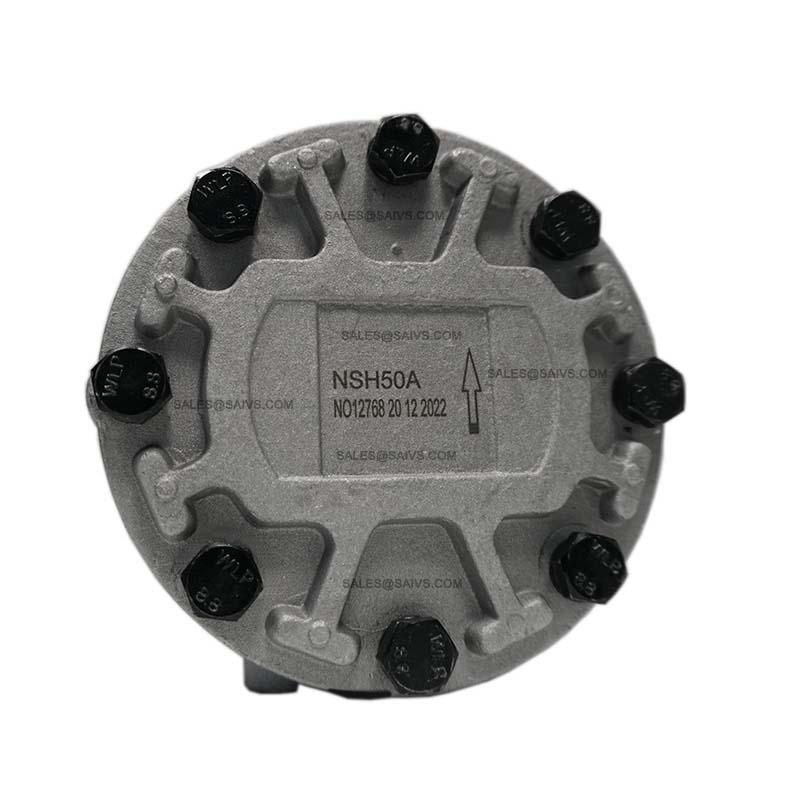How to extend the service life of hydraulic pumps
The service life of hydraulic pumps depends on a number of factors, including the quality of the pump,
the operating conditions, and the level of maintenance.
In this article, we will discuss 5 methods to extend the service life of Hydraulic Pumps.
Proper Installation
Proper installation is the first step in ensuring the longevity of hydraulic pumps.
Before installation, ensure that the pump is properly sized for the application
and the environment it will operate in.
Check that all fittings and hoses are properly tightened, and that there are no leaks.
Also, ensure that the pump is properly aligned with the drive shaft,
as misalignment can cause premature wear and damage.
Regular Maintenance
Regular maintenance is essential to extending the service life of hydraulic pumps.
This includes regular inspections, oil changes, and replacement of worn or damaged parts.
Depending on the application, the recommended maintenance intervals may vary,
so it is important to consult the manufacturer's recommendations.
Regular inspections should be done to check for leaks, worn or damaged parts, and other issues.
Oil changes should be done on a regular basis to ensure that the pump is running on clean oil.
Dirty oil can cause premature wear and damage to the pump's components.
Replacement of worn or damaged parts should be done as soon as possible to prevent further damage or failure.
This includes seals, bearings, and other key components that are prone to wear.
Proper Oil Selection
Proper oil selection is another important factor in extending the service life of hydraulic pumps.
The right oil can help to reduce friction and wear, while also protecting against corrosion and oxidation.
It is important to select an oil that is compatible with the pump's components,
as well as the operating conditions. The viscosity of the oil is also important,
as it affects the pump's performance and efficiency.
Too thick of an oil can cause excessive drag and reduce efficiency,
while too thin of an oil can cause excessive wear and damage to the pump's components.
Proper Operating Conditions
Proper operating conditions are critical to extending the service life of hydraulic pumps.
This includes ensuring that the pump is not being overloaded,
and that the operating temperatures are within the recommended range.
Overloading can cause excessive wear and damage to the pump's components,
while operating temperatures outside of the recommended range can cause excessive wear, damage, and even failure.
It is also important to ensure that the pump is properly lubricated and that there is no contamination,
as this can cause damage to the pump's components.
Proper Training
Proper training is essential for anyone who will be working with hydraulic pumps.
This includes understanding the principles of hydraulic systems, as well as how to properly install,
maintain, and operate hydraulic pumps. Improper installation, maintenance,
or operation can cause premature wear and damage to the pump's components,
as well as potentially dangerous situations.
Proper training can also help to identify potential issues before they become major problems,
allowing for proactive maintenance and repairs.
Conclusion
There are a number of methods to extend the service life of hydraulic pumps.
Proper installation, regular maintenance, proper oil selection, proper operating conditions,
and proper training are all critical factors in ensuring the longevity and reliable performance of hydraulic pumps.
By following these methods, hydraulic pumps can provide reliable service for years to come.
Saivs brand
- PAVC Parker Hydraulic pump
- PVV-1X series Rexroth Vane Pump
- Counterbalance Valves CBEA
- Gear pumps series NSH32M
- GM3 Series Hydraulic Radial Piston Motor
- Japan Tokimec SQP Series Hydraulic Oil Vane Pump
- rexroth 4wrze10 4wrze16 4wrze25 4wrze32 series electro-hydraulic proportional directional valve
- Counterbalance Valves CBCG
- A2FM Rexroth Axial Piston Fixed Motor
- Rexroth 4WREE6 4WREE10 Series proportional directional valve
